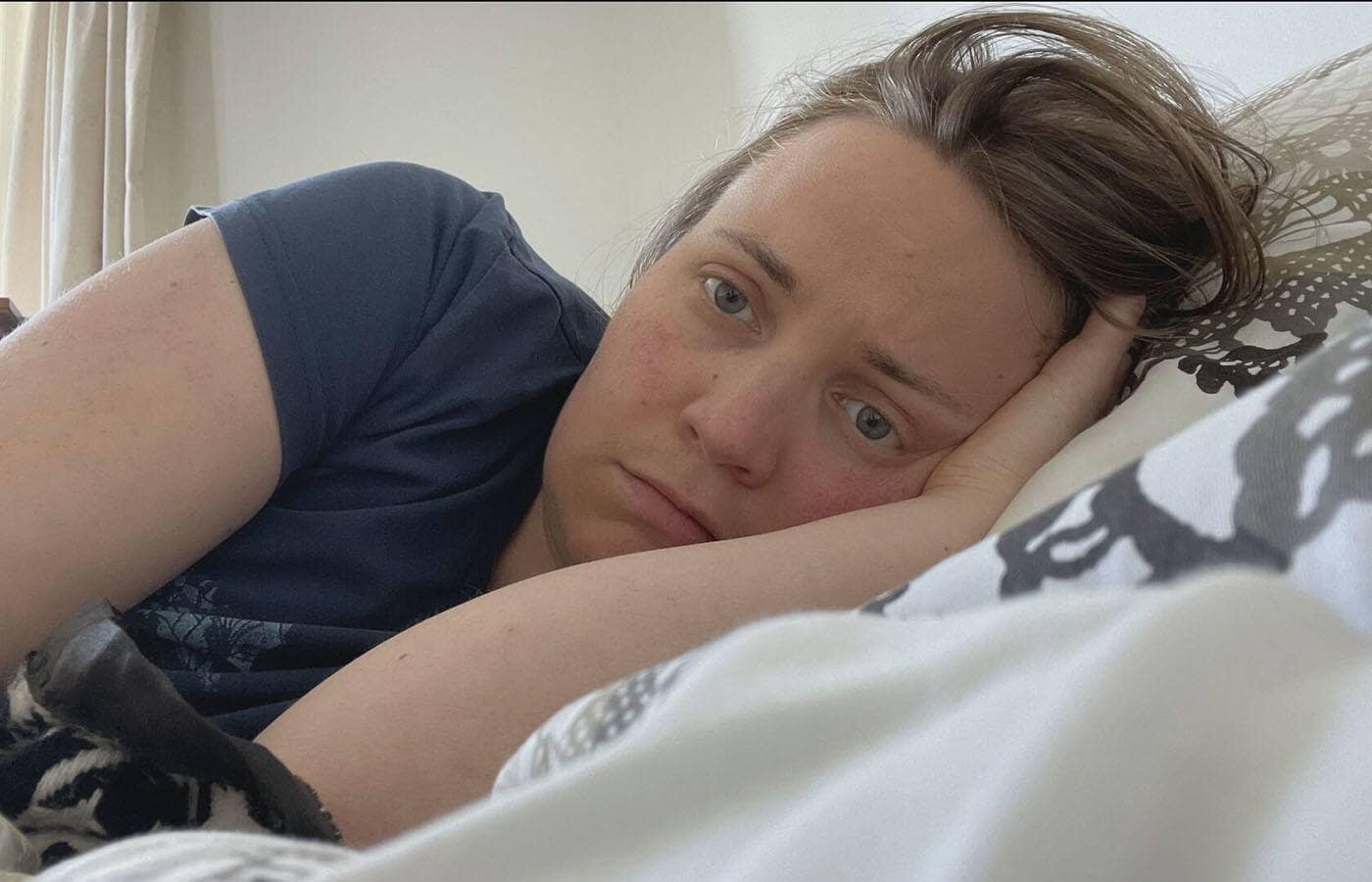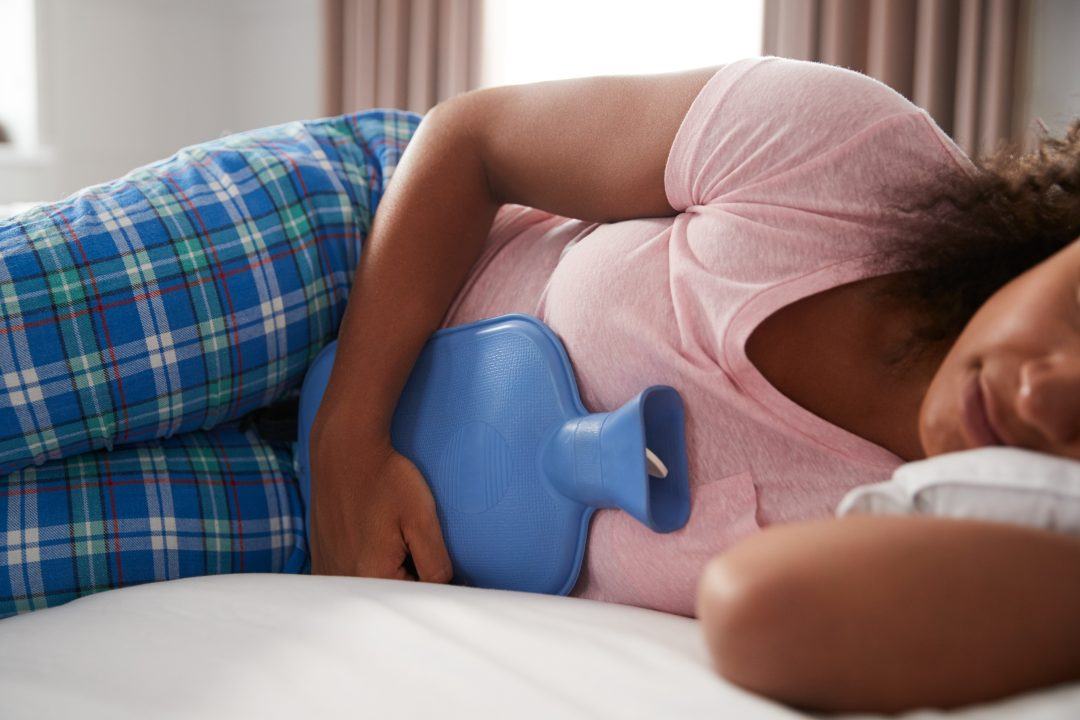Key Points
-
 Women with long Covid experience heavier and longer periods, a new study has found
Women with long Covid experience heavier and longer periods, a new study has found -
 Scots scientists found long Covid symptoms fluctuate based on different points in the menstrual cycle
Scots scientists found long Covid symptoms fluctuate based on different points in the menstrual cycle -
 Symptoms like brain fog, dizziness and breathing issues were aggravated around and during periods
Symptoms like brain fog, dizziness and breathing issues were aggravated around and during periods -
 Those who recovered from a short-term Covid illness experienced less disruption
Those who recovered from a short-term Covid illness experienced less disruption -
 Long Covid affects 30% more women than men, researchers say
Long Covid affects 30% more women than men, researchers say
Women are experiencing longer and heavier periods as a long-term result of Covid, Scottish scientists have revealed.
Researchers from the University of Edinburgh also found that long Covid symptoms fluctuate at different points in the menstrual cycle.
Women with long Covid also reported more bleeding between cycles compared to those never infected or who recovered from acute Covid.
Researchers said the findings demonstrate the complex relationship between menstrual health and long Covid, a condition which experts say affects about 30% more women than men.
 iStock
iStockLong Covid symptoms like brain fog, dizziness, and breathing issues worsened around menstruation and eased after ovulation, indicating a cyclical pattern, scientists said.
The scientists joined colleagues from the universities of Montpellier and Oxford to examine data from an online UK survey of more than 10,000 women between March and May 2021.
The sample included more than 1,000 women with long Covid, 1,700 who had recovered from acute Covid infection and 9,000 individuals who had not been infected.
Hormone levels impacted by long Covid
The study examined the impact of different stages of the menstrual cycle on long Covid symptoms, using an app to track daily symptoms in 54 women for three months.
It found that long Covid symptoms, such as brain fog, dizziness and breathing issues, were most severe around periods with women saying their symptoms eased after the expected time of ovulation.
Hormone and inflammation levels were also measured, with and without long Covid, using samples of blood and tissue from the lining of the uterus.
Women with long Covid had a higher level of the hormone 5α-dihydrotestosterone, a male hormone also present in females at lower levels, than those without the condition.
This hormone supports the creation, migration and survival of stromal cells, a type of tissue cell, within the uterus lining, which is shed during menstruation.
Researchers said the increase in these hormones could help to explain heavier menstrual bleeding in those with long Covid.
Levels of progesterone and oestradiol were similar in those with and without long Covid, indicating that long Covid does not significantly affect ovarian function.
Higher levels of inflammation were found in the blood of those with long Covid around the time of their period which scientists say may also contribute to problematic bleeding and influence symptom severity during menstruation.
‘Long Covid added to the rollercoaster of my cycle’
Marie-Claire Grounds, who took part in the study, spoke to STV News in 2023 about her experience with long Covid and how it affected her cycle.
 STV News
STV News“It’s like an added layer to the rollercoaster, because you’re continually cycling your hormones,” she said.
“There’s been an enormous impact on my symptoms – near the period it’s much worse, but in the early part of the cycle my cognition is worse, my brain fog is worse, my fatigue worsens.”
Marie-Claire added: “There’s so much that we still need to learn about and understand – and a lot of those have been illnesses that predominantly [affect] women, so there needs to be this turning point.
“It’s really brilliant that this study is going on, to start to answer questions.”
Study is ‘first step’ towards specific treatments
Researchers say the link between menstrual health and long Covid must be considered during the development of diagnostic tools for the condition, as symptoms and biological markers may change across the menstrual cycle.
Dr Jackie Maybin, reader and consultant gynaecologist at the University of Edinburgh’s Centre for Reproductive Health and NHS Lothian, said the study is the “first step” towards specific treatments for menstrual disturbance in women with long Covid.
“Heavier, longer periods can result in iron deficiency. Given the symptoms that those with long Covid are already enduring, it is essential that we rapidly identify menstrual disturbance and have effective treatments to prevent iron deficiency and its associated fatigue, weakness and shortness of breath,” she said.
Dr Alexandra Alvergne, senior researcher from the French National Centre for Scientific Research (CNRS), University of Montpellier, said: “It’s important to consider the potentially bi-directional relationship between disease and menstruation, where symptoms vary across the menstrual cycle and disease influences cycle parameters.
“Here we show this may be the case for long Covid, where long Covid associates with abnormal uterine bleeding and symptoms flare up around menstruation.”
The study, funded by Wellcome, the Royal Society of Edinburgh, Wellbeing of Women and UKRI, was published in the journal Nature Communications on Tuesday.
Follow STV News on WhatsApp
Scan the QR code on your mobile device for all the latest news from around the country


 Adobe Stock
Adobe Stock

























